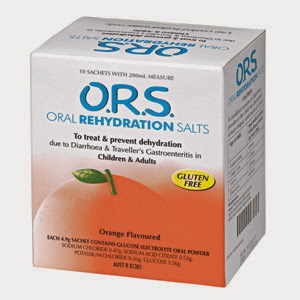PREVENTION IS BETTER THAN CURE
Food Hygiene
Purchase of Food
- Select fresh meat and vegetables
- Purchase food from hygienic, reliable and reputable sources to ensure quality
- Do not patronize unlicensed hawkers or food stalls selling cooked food
- Read and follow the storage instructions and pay attention to the “use by” or “best before” date on food labels when buying pre-packed food
- Do not buy any food that is abnormal in appearance, e.g. canned food in rusty, expanded or dented can
Handling of Food
- Food should be thoroughly washed before storage or cooking. Meat and seafood must be thoroughly cooked
- Food should be consumed as soon as it is served. Hot food should be eaten when it is still hot and cold dishes should be stored in the refrigerator until consumption
- Use different sets of chopping blocks and knives for cutting raw and cooked food
Storage of Food
- Raw and cooked food should be stored separately to avoid cross contamination. Place cooked food in the upper compartment of refrigerator.
- Cooked food, unless consumed at once, should be kept below 4ºC or above 63 ºC. Do not store food under room temperature to avoid multiplication of bacteria.
- Leftover food should be stored in the refrigerator and re-heated thoroughly before consumption.
- Refrigerator should be cleaned properly and regularly and its temperature should be kept below 4 ºC.
- Do not store excessive amount of food in the refrigerator to avoid affecting cold air circulation.
Personal Hygiene
- Wash hands with soap and water after going to the toilet and before handling food
- Anybody who suffers from diarrhea or vomiting should not handle or touch any food to avoid bacteria contaminating the food
- Bandage wounds with waterproof plasters before handling any food
Environmental Hygiene
- Put all rubbish & food remains into a dustbin and cover it up tightly. Dustbin must be emptied frequently and regularly
- Clean the kitchen frequently and regularly to prevent harbouring rats and insects.
In most cases, food poisoning can be treated at home without seeking medical advice.
It is very important that you do not become dehydrated because it will make you feel worse and slow down your recovery.
Dehydration is a risk because you will lose fluid through vomiting and diarrhea.
You should try to drink as much water as possible, even if you're only able to sip it, particularly after you pass diarrhea.
Oral rehydration salts (ORSs)
Oral rehydration salts (ORSs) are recommended for people vulnerable to the effects of dehydration, such as the elderly and those with a pre-existing health condition.
ORSs are available in sachets from pharmacies. You dissolve them in water to drink and they help replace salt, glucose and other important minerals your body loses through dehydration.
If you have a kidney condition, some types of oral rehydration salts may not be suitable for you. Ask your pharmacist or doctor for further advice about this.
Other self care advice
To cope with your symptoms and speed up your recovery you should also:
- rest
- eat when you feel up to it (the gut sometimes needs time to recover and food may cause diarrhea even if you feel better)
- stick to foods that are easily digested, such as toast, crackers, bananas and rice until you begin to feel better
- avoid alcohol, cigarettes, caffeine and spicy and fatty foods because they will make you feel worse
Further treatment
Visit your doctor or accident and emergency (A&E) department if you are severely dehydrated – for example, if you have sunken eyes and you are unable to urinate.
Doctor may admit you to hospital so that you can be given fluids and nutrients through a tube inserted into a vein (intravenously).
Antibiotics may be prescribed if test results show the source of your food poisoning was bacterial, and your symptoms are severe or last longer than 3–4 days.
Antibiotic tablets are usually used, although you may be given injections if your symptoms are severe or if you are struggling to keep tablets down.


No comments:
Post a Comment